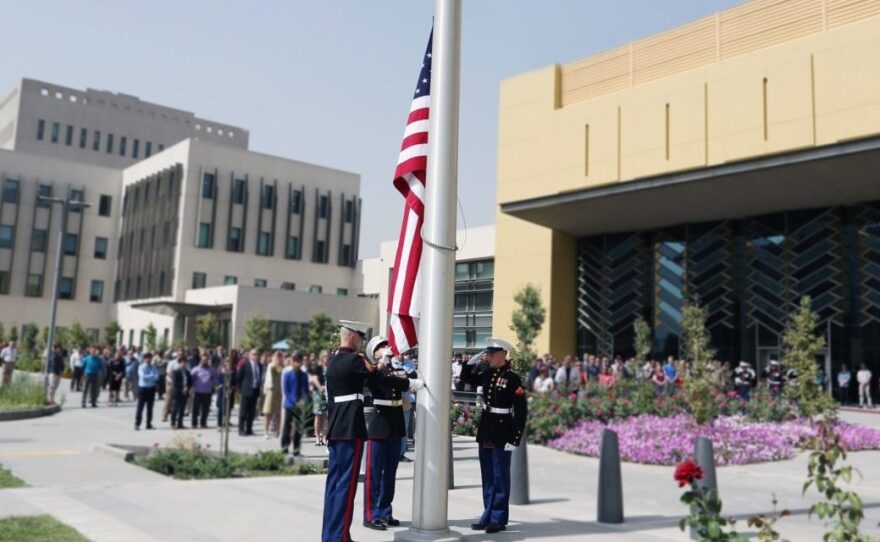After nearly two decades working with Americans, a generation of Afghan interpreters worry they’ll be left behind if a peace agreement holds with the Taliban.
Though a ceasefire has not held, United States officials signed an agreement in late February that could set the stage for a U.S. troop withdrawal.
Former interpreters have been watching the peace process from the sidelines.
Mohammed, who's going only by his first name out of security concerns, recently arrived in San Diego from Kabul. Mohammed finally has the space to deal with mundane dad problems, like helping his son adjust to American schools.
“He just started school day before yesterday," Mohammed said. "He said, 'Dad, everyone speaks English. I can’t.' I said no worries. You will be learning."
For nearly 4 years Mohammed had been trying to get himself and his young family out of Afghanistan. His work as a translator for the U.S. army had made life dangerous. The Taliban visited Mohammed’s home village, threatening his parents and extended family. He felt he had to leave. He hasn’t been back to his home village in six years.
“I’m safe here,” he said, of his new apartment outside San Diego. “The main thing is security. Security is better than everything. Because we save our life. We save our kids, family. We need that.”
Mohammed came into the U.S. under the Special Immigrant Visa program. The latest defense bill set aside another 4,000 visas for interpreters. Supporters say it’s a fraction of the number needed to clear away the backlog of at least 10,000 interpreters and their families.
“I had to look these people in the eye and say we’re not going to abandon you. America doesn’t do that,” said Matt Zeller, who co-founded the group No One Left Behind, after struggling to get his own interpreter out of Afghanistan.
The army vet fears the last chapter of America’s longest war will be a humanitarian tragedy.
“If we fail to keep this promise, there is an entire generation of Vietnam vets who will tell you that the greatest sin of their war was the abandonment of the allies that we left behind,” he said.
The problem isn’t just the number of available visas, but the approval process, which typically takes years. The process was often slow under previous administrations but the backlog has ballooned in recent years, Zeller said.
“I think it’s abhorrent that the Trump administration, in particular, has decided that these American patriots should receive such an extreme level of vetting that it essentially renders their ability to get into the country impossible,” Zeller said.
The law actually requires that the vetting process take only nine months, but the backlog has continued to grow. In February, following a lawsuit, a federal judge in Washington gave the administration 30 days to propose a plan to speed up the process. The deadline is this week.
“Very concerned about the situation in Afghanistan,” said Adam Bates, who works with the International Refugee Assistance Project, the group that filed the lawsuit.
“We’re especially concerned, gravely, at the idea of relying on the Taliban in some kind of post-agreement Afghanistan to protect Afghans who served with the U.S. mission,” he said.
Even if the Trump administration improves the process, the fear is that time is running out — if Americans aren’t in Afghanistan to vet the applications, Bates said.
America has been in Afghanistan for nearly two decades. For those who worked with U.S. forces, the work could be risky, but the dangers weren’t always overt. There’s a feeling that will change now that the Taliban is likely to play a prominent role in the new Afghanistan. In the meantime, paperwork may have been lost. Some of the translators worked with private contractors who are no longer in business.
“If they stop the program, most of these people will lose their life,” Mohammed said.
He just started a job in San Diego working for a small manufacturer. It’s a big change from when he was in Afghanistan, where his work with U.S. forces made it hard for him to find other jobs.
“Life was going, very very bad because we need money to save our life," he said. "We need money for our kids, for everything."
Mohammed is still in contact with other former translators back home. That includes one man in the eastern part of the country, whose brother was killed by the Taliban. Mohammed said he hopes the next round of visas will be for the colleagues he left behind.






